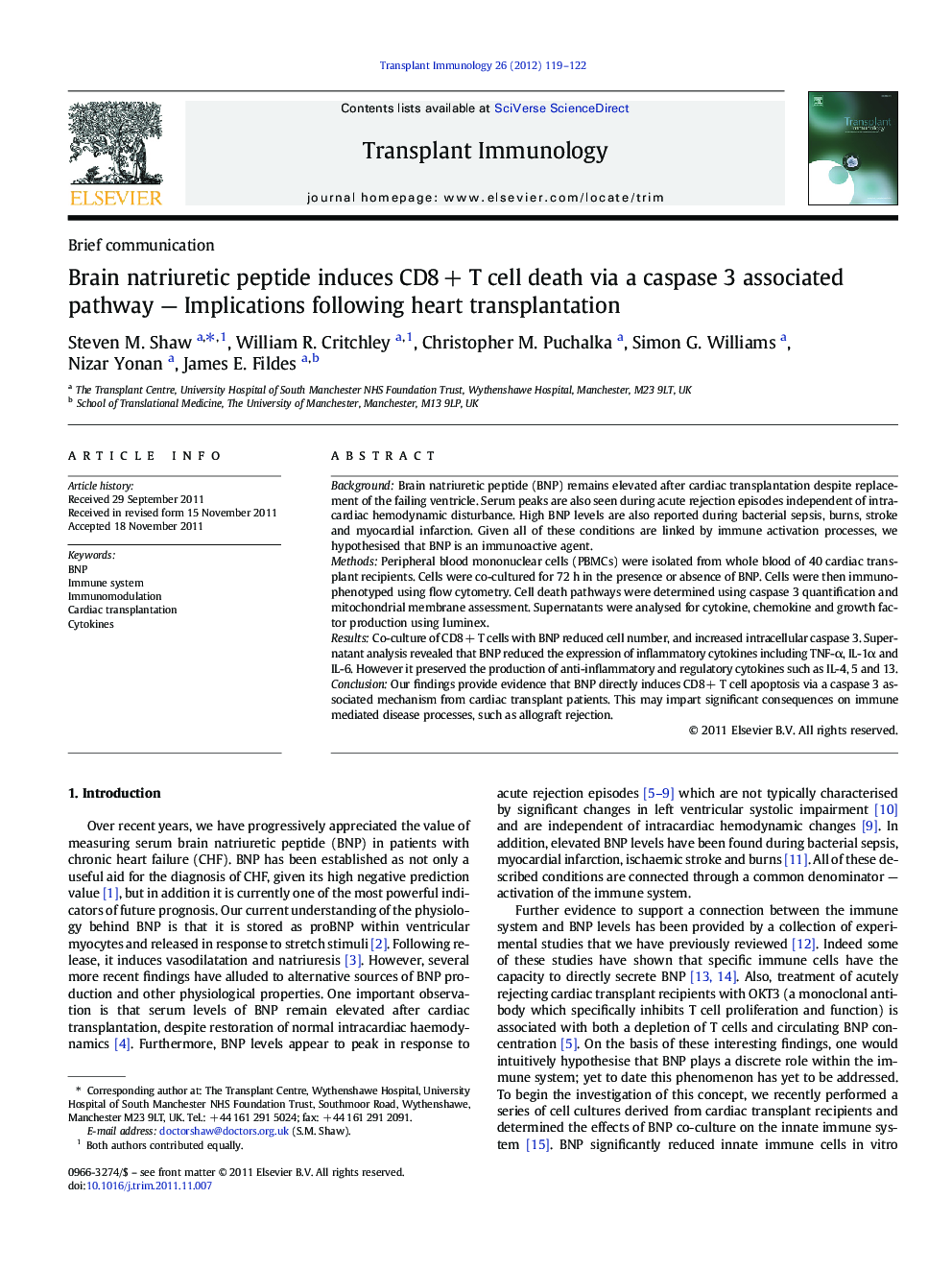| Article ID | Journal | Published Year | Pages | File Type |
|---|---|---|---|---|
| 3392173 | Transplant Immunology | 2012 | 4 Pages |
BackgroundBrain natriuretic peptide (BNP) remains elevated after cardiac transplantation despite replacement of the failing ventricle. Serum peaks are also seen during acute rejection episodes independent of intracardiac hemodynamic disturbance. High BNP levels are also reported during bacterial sepsis, burns, stroke and myocardial infarction. Given all of these conditions are linked by immune activation processes, we hypothesised that BNP is an immunoactive agent.MethodsPeripheral blood mononuclear cells (PBMCs) were isolated from whole blood of 40 cardiac transplant recipients. Cells were co-cultured for 72 h in the presence or absence of BNP. Cells were then immunophenotyped using flow cytometry. Cell death pathways were determined using caspase 3 quantification and mitochondrial membrane assessment. Supernatants were analysed for cytokine, chemokine and growth factor production using luminex.ResultsCo-culture of CD8 + T cells with BNP reduced cell number, and increased intracellular caspase 3. Supernatant analysis revealed that BNP reduced the expression of inflammatory cytokines including TNF-α, IL-1α and IL-6. However it preserved the production of anti-inflammatory and regulatory cytokines such as IL-4, 5 and 13.ConclusionOur findings provide evidence that BNP directly induces CD8 + T cell apoptosis via a caspase 3 associated mechanism from cardiac transplant patients. This may impart significant consequences on immune mediated disease processes, such as allograft rejection.
► BNP induces CD8 + T cell apoptosis in a caspase-3 dependent mechanism. ► BNP does not compromise mitochondrial membrane integrity. ► Co-culture with BNP reduced the release of cytokines, chemokines and growth factors.
